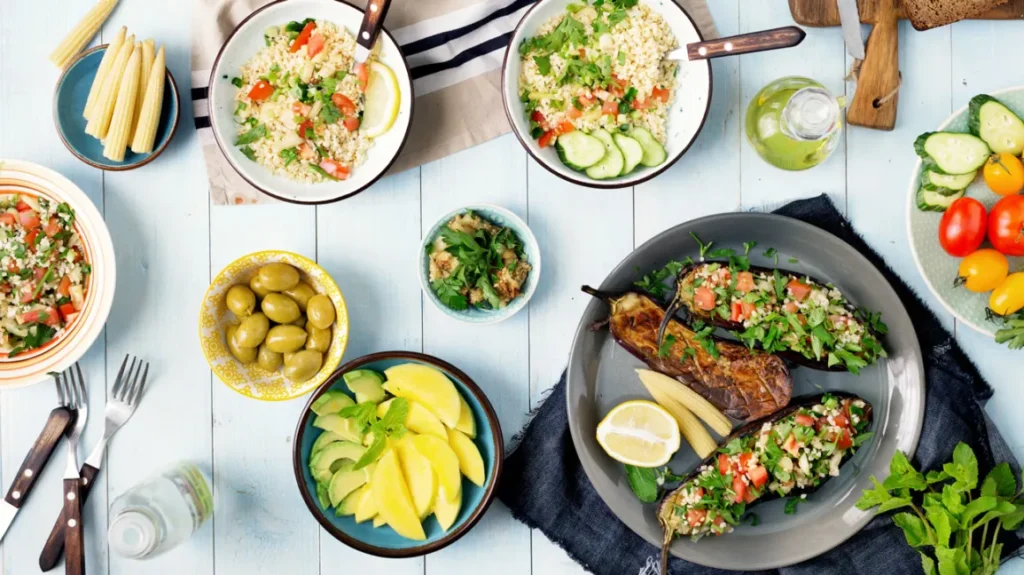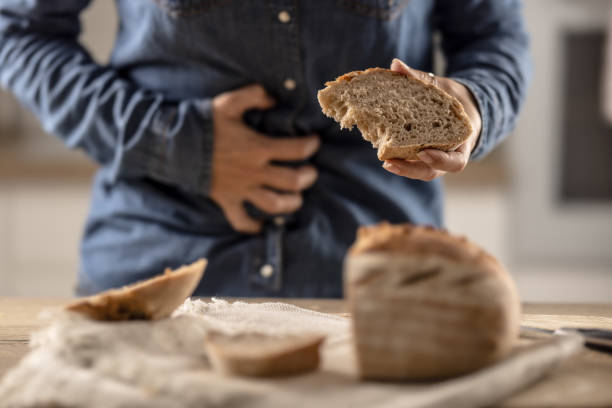Celiac disease is an autoimmune disorder in which eating gluten—a protein found in wheat, barley, and rye—triggers an immune response that damages the small intestine. This can lead to digestive discomfort, nutrient deficiencies, and long-term health complications. The only effective treatment is a strict Gluten-Free Diet for Celiac Disease. By avoiding gluten completely, people with celiac disease can heal their gut, prevent complications, and live a healthy life. This article explains what to eat, what to avoid, and how to follow a Gluten-Free Diet for Celiac Disease successfully.
What is Gluten-Free Diet for Celiac Disease?
A gluten-free diet eliminates all foods and products that contain gluten. While it may seem restrictive at first, there are plenty of naturally gluten-free options, and many gluten-free substitutes are now widely available.
- What is Gluten-Free Diet for Celiac Disease?
- Benefits of a Gluten-Free Diet for Celiac Disease:
- Gluten-Free Diet for Celiac Disease Foods to Eat:
- Foods to Avoid on a Gluten-Free Diet for Celiac Disease:
- Sample Meal Plan Gluten-Free Diet for Celiac Disease:
- Risks of Not Following a Gluten-Free Diet with Celiac Disease:
- Conclusion:
- FAQ:
Benefits of a Gluten-Free Diet for Celiac Disease:
- Heals the small intestine and restores the gut lining.
- Eliminates digestive symptoms like bloating, gas, diarrhea, and constipation.
- Improves nutrient absorption, preventing deficiencies in iron, calcium, and vitamins.
- Boosts energy levels and reduces chronic fatigue.
- Enhances mental clarity by lowering brain fog and mood swings.
- Reduces risk of long-term complications, including anemia, osteoporosis, infertility, and intestinal cancer.
- Supports healthy weight management by promoting better digestion.
- Improves overall quality of life with fewer flare-ups and discomfort.
- Allows children with celiac disease to grow and develop normally.
- Encourages healthier eating habits by focusing on whole, naturally gluten-free foods.
Gluten-Free Diet for Celiac Disease Foods to Eat:
People with celiac disease can enjoy a wide range of naturally gluten-free foods, including:
Whole Foods (Naturally Gluten-Free):
- Proteins: Eggs, chicken, turkey, fish, beef, pork, tofu, beans (ensure not cross-contaminated)
- Fruits: Apples, bananas, grapes, berries, oranges, kiwi, pineapple
- Vegetables: Carrots, spinach, zucchini, potatoes, broccoli, peppers, cucumbers
- Grains & Starches (Gluten-Free): Rice, quinoa, millet, corn, buckwheat, amaranth, certified gluten-free oats
- Dairy (if tolerated): Milk, cheese, yogurt, butter (check labels for additives)
- Nuts & Seeds: Almonds, chia seeds, sunflower seeds, flaxseeds
Foods to Avoid on a Gluten-Free Diet for Celiac Disease:
Celiac patients must strictly avoid gluten-containing foods:
Grains & Products with Gluten:
- Wheat (bread, pasta, couscous, wheat flour)
- Barley (malt, malt vinegar, beer)
- Rye (rye bread, rye crackers)
- Triticale (a wheat-rye hybrid)
Processed & Packaged Foods (Unless Labeled Gluten-Free):
- Cakes, cookies, pastries, and pies
- Breakfast cereals made with wheat or barley
- Sauces, gravies, and soups with wheat thickeners
- Soy sauce (unless gluten-free tamari)
- Beer, ale, and malt beverages
Hidden Sources of Gluten:
- Salad dressings and marinades
- Seasoned rice mixes and flavored snacks
- Candy and chocolate with malt flavoring
- Processed deli meats and sausages (check additives)

Sample Meal Plan Gluten-Free Diet for Celiac Disease:
Breakfast:
- Gluten-free oatmeal topped with blueberries and chia seeds
- Herbal tea or black coffee
Lunch:
- Grilled chicken with quinoa and roasted vegetables
- Side of mixed green salad with olive oil dressing
Snack:
- Rice cakes with almond butter
- Apple slices
Dinner:
- Baked salmon with mashed potatoes
- Steamed broccoli and zucchini
- Fresh fruit bowl
Risks of Not Following a Gluten-Free Diet with Celiac Disease:
If gluten is not eliminated, celiac disease can lead to:
- Chronic diarrhea, abdominal pain, and malnutrition
- Iron-deficiency anemia
- Osteoporosis (due to poor calcium absorption)
- Infertility and pregnancy complications
- Higher risk of intestinal cancers
Conclusion:
A Gluten-Free Diet for Celiac Disease is the only proven treatment for celiac disease. By eliminating gluten completely and focusing on fresh, whole, and certified gluten-free foods, patients can heal their intestines, relieve symptoms, and prevent serious complications. With growing awareness and gluten-free product availability, maintaining this diet has become easier than ever.
FAQ:
Q. Can celiac patients eat oats?
A. Yes, but only certified gluten-free oats, as regular oats are often contaminated with wheat.
Q. Is rice gluten-free?
A. Yes, all types of rice (white, brown, wild) are naturally gluten-free.
Q. Do I need supplements on a gluten-free diet?
A. Sometimes. Work with your doctor or dietitian to check for deficiencies in iron, vitamin D, calcium, or B vitamins.
